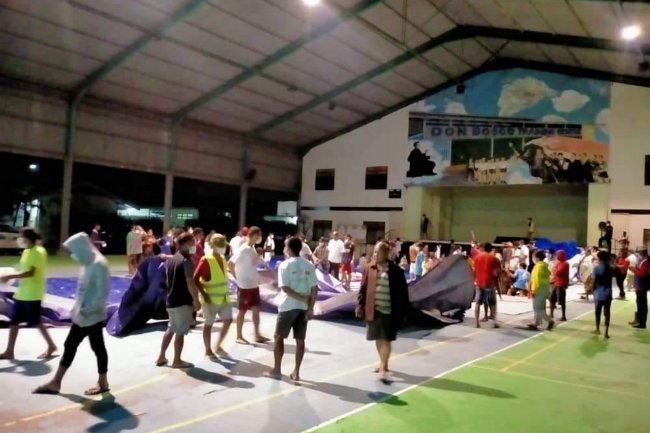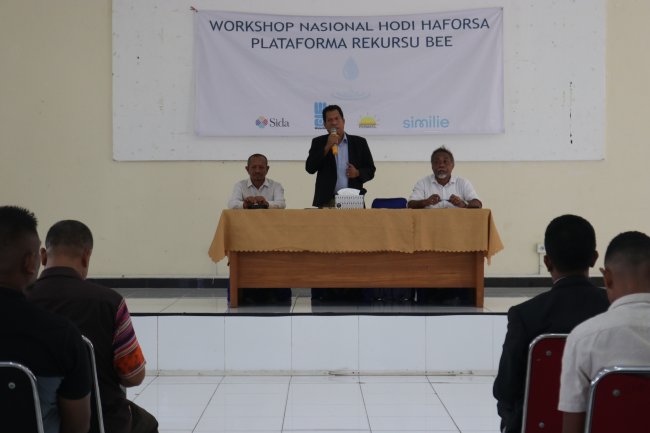Workshop Strengthening the sustainability of WASH institutions to be resilient to climate change
Manufahi, the civil society organizations as the implementing partners under HALIRAS program funded by Water for Women organized a workshop of strengthening WASH institutions sustainability to be resilient to climate change
On 17 of september, the civil society in Manufahi municipality consist of Fundasaun Luta ba Futuru (F-LBF), Luta ba Mudansa (LBM), and Feto Asaun Kreativu (FAKMAS) together with the director of SMASA Manufahi organized a municipal level workshop with the theme "Strenghthening the WASH institutions' sustainability to be resilient to climate change at the Da Monthana hall, Manufahi municipality.
The objective of this workshop is to share the results of the implementing partners' work under HALIRAS program including the challenges they faced in order to identify the alternative potential solution to the WASH system in Manufahi particularly in rural areas.
Armando Da Silva, the director of F-LBF on this presentation stated that the municipal actors in Manufahi have to prioritize the sustainability of programs suported by the development partners specially climate change issues to secure the resilitency and sustainability in tackling impacts.
He added that the challenges they faced is the aspect of sustainability of the programs that we have been runing. Particularly the built WASH infrastruture that could be damaged due to the extreme weathers and also can dries the water sources. Thus, the govrnment at the municipal level has to prioritise the aspects of resilient and sustainability in WASH sector.
The director of SMASA Manufahi, Mr. Domingos Soares on his opening remark expressed that climate change has been challenging to the WASH infrastructure particularly the water systems. However, the sustainability of the water systems could not only depends on SMASA and its partners but its on everyone specilially the municipal government's effort to build the community's sense of ownership to protect the installed water systems.
He added that, we can't garantee the sustainability of the WASH infrastucture if the community continue to cut the trees, and not protecting the environment which affects the installed water systems as the water debit might decreases in the future.
The country director of WaterAid Timor-Leste on his opening intervention also higlithed that WaterAid Timor-Leste as been working in Manufahi for more than 10 years now and focuses on the WASH programs integrated to GEDSI and climate change including health programs related to WASH and healthcare facilities. He added, WATL's WASH programs will continue to be implemented in Manufhi even though WATL will close its office in Manufahi this year. He closed his remarks saying that WATL has contribute to achieve 84% people having access to water , 95% access to sanitation, and have constructed 23 healthcare facilities, and 4 inclusive WASH health post. Therefore, there is a big significant change that can be found and helped the pregnant women and the patients.
The representative of the President of Manufahi's Municipal Authority Mr. Aleixo de Deus stated that the municipal government has the role and commitment to socialize and mitigate the effects ofclimate change to the WASH insfrastucture. He also expressed his gratiture to the local NGOs and the development partners who continuously supported the municipal government of Manufahi in achieving these milestones.
There are also sharing sessions that lead by the Chief of villages and community who shared how they are experiencing the most significant change personally and in their community level related to the WASH programs implemented by WaterAid Timor-Leste toegether with its implementing partners FLBF, LBM, and FAKMAS in Manufahi.
This activity is supported by the Australian Government through the Water for Women Fund.








